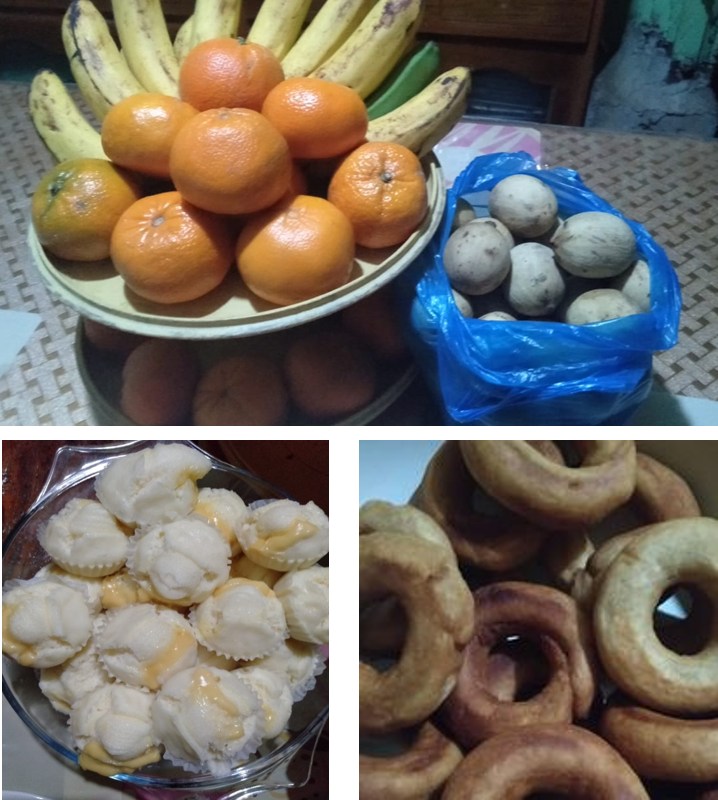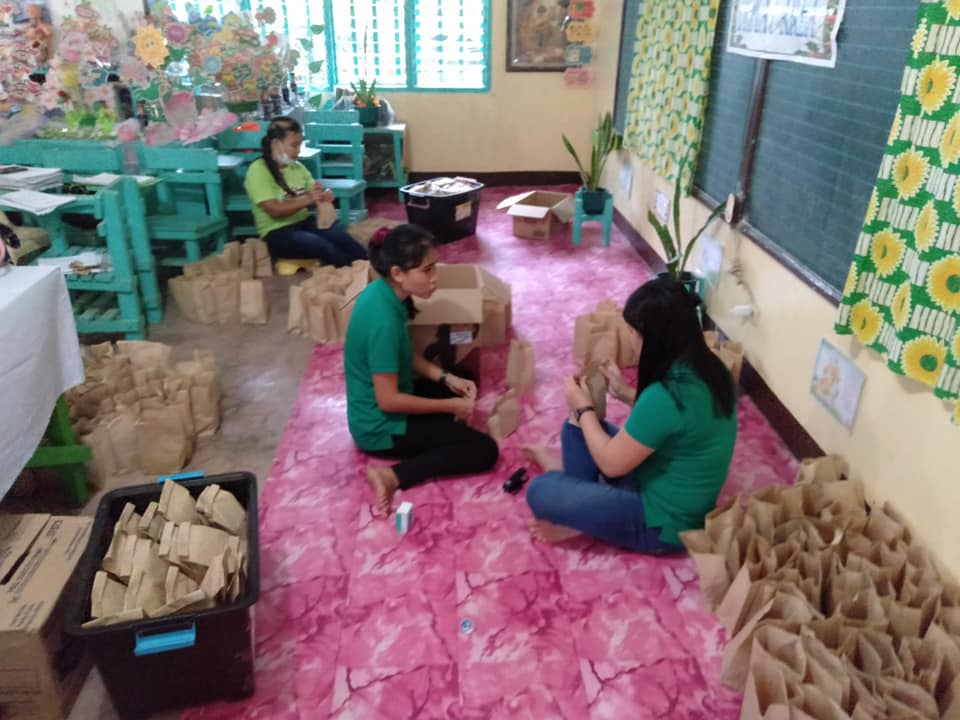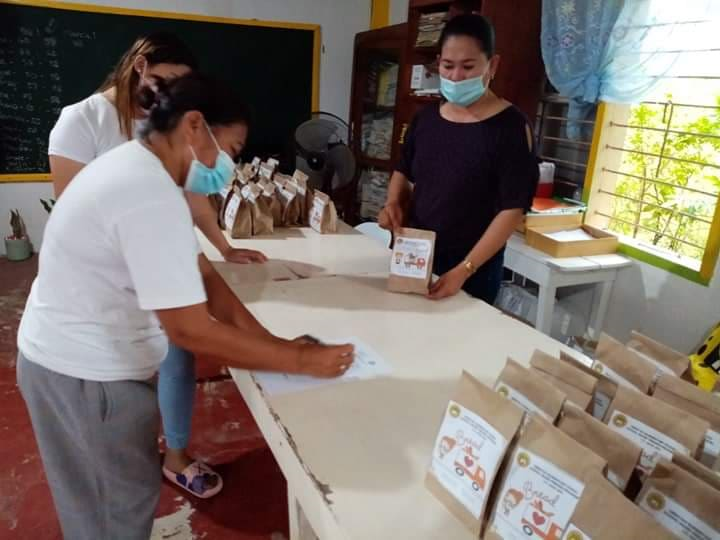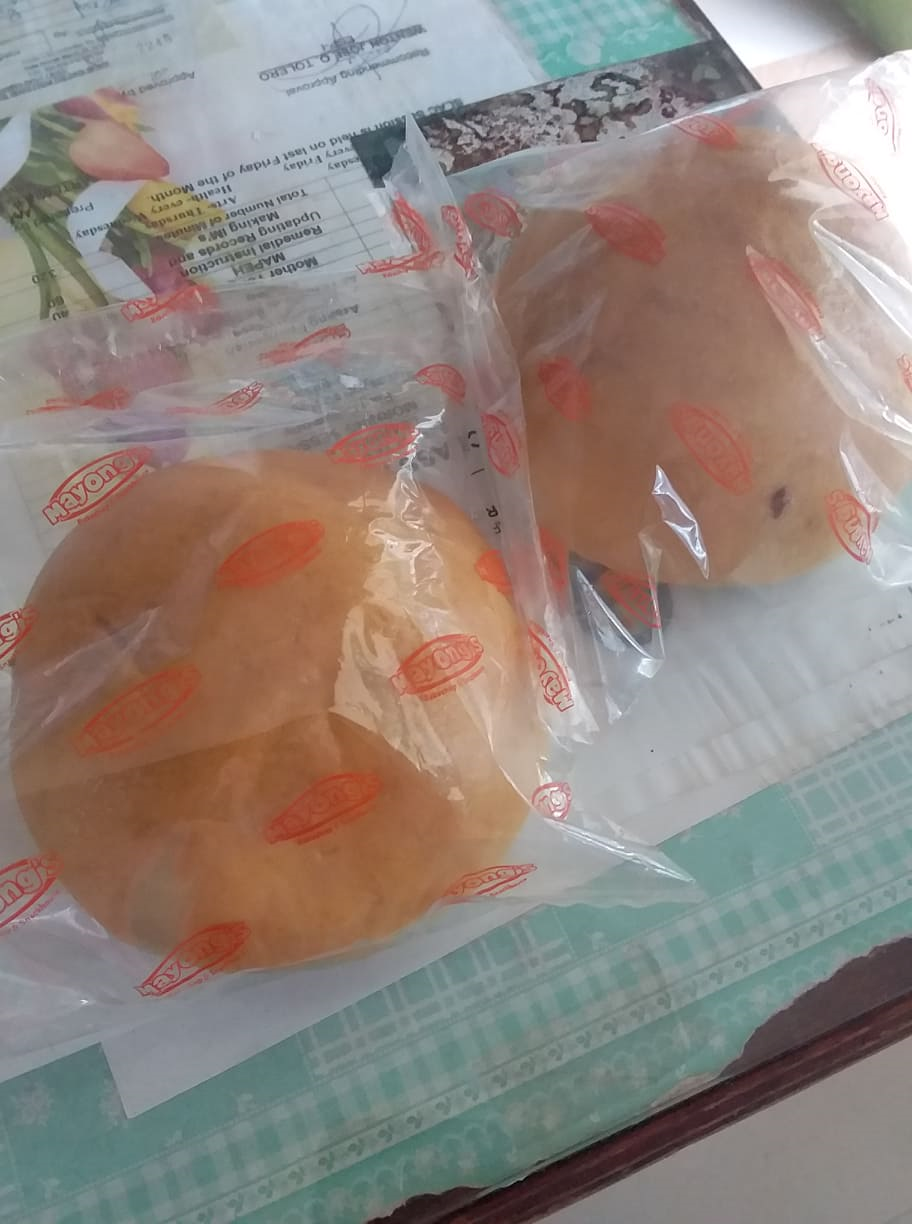Palo, Leyte - The Department of Education (DepEd) Regional Office VIII has continued the implementation of the School-Based Feeding Program (SBFP), noting its relevance in the midst of the COVID-19 pandemic and the challenges it has presented.
Some 185,325 pupils from Kindergarten to Grade 6 nationwide were the beneficiaries of the SBFP’s Nutritious Food Products (NFP) component; and 167,923 pupils provided milk through the SBFP’s milk component.
The SBFP consist of the provision of Nutritious Food Products (NFP) and fresh or sterilized milk with a total fund allocation of P310,864,698.00 for the school year 2020-2021, It aims to address hunger and encourage learners to enroll; contribute to the improvement of their nutritional status; provide nourishment for their growth and development and help boost their immune system, and enhance and improve their health and nutrition values.
The program is in compliance with RA 11037, otherwise known as the Masustansyang Pagkain para sa Batang Pilipino Act signed by Pres. Rodrigo Duterte on June 20, 2018. The law provides for the inclusion of fresh milk or fresh milk-based products in the SBFP as additional component to hot meals. The Bayanihan to Heal as One Act also provides for the augmentation of the SBFP budget for school year 2020.
For the fresh milk component, DepEd has partnered with the Philippine Carabao Center (PCC) and the National Dairy Authority (NDA) along with the support of various cooperatives and small and medium enterprises (SMEs) engaged in dairy business. This is pursuant to the mandates of RA No. 11037 and in accordance with Republic Act No. 8172, otherwise known as the “Philippine Food Fortification Act of 2000”, utilizing, as far as practicable, locally produced milk in order to enhance its nutritional content and, at the same time, help boost livelihood opportunities for local dairy farmers and local dairy industry.
DepEd has also tapped cooperatives and small and medium enterprise (SME) producers of nutritious food products, particularly those assisted and accredited by the Food and Nutrition Research Institute (FNRI) of the Department of Science and Technology (DOST).
For the Milk Feeding Program Component, DepEd, through the BLSS-SHD, sought the assistance of the National Dairy Authority (NDA) and Philippine Carabao Center (PCC) in identifying, gaining access to and dealing with the local dairy farms and/or cooperatives for the sourcing and procurement of fresh milk and sterilized milk, as well as the provision of technical assistance and other services in ensuring the production, processing, packaging, delivery and storage, as well as the safety and hygiene of the fresh milk and sterilized milk that are to be given to the intended beneficiaries. Schools Divisions that are either not covered or are insufficiently covered by the supply map of NDA and PCC were allowed to procure powdered or sterilized milk (Please see DO 37 s. 2020 (Supplemental Guidelines to DepEd Order No. 22 and 23 s. 2020 [Implementation of School-Based Feeding Program ])
As of December 2020, a total of 3613 schools have already implemented the Nutritious Food Products component and Fresh Milk component
With the challenges brought by the pandemic, DepEd adopted and innovated strategies to implement the SBFP following all standard health protocols. Due to deferment of face to face classes, most of the schools directly distributed the food and milk items to the homes of beneficiaries.
Under the new normal and the blended distance learning mode, DepEd intensified its partnership and collaboration with the local government units in the distribution of nutritious food and milk packs directly to the homes of the learners. In areas where parents and/or guardians go to schools to pick-up self-learning modules and/or to submit accomplished worksheets of their children, food and milk ration for one week are also distributed to them.
For SY 2020-2021 the total budget allocation of P310,864,698 was implemented from the month of August, 2020 (see table 1 for fund allocation and regional distribution, SBFP SY 2020-2021). The SBFP SY 2021-2022 has a total budget of P329,908,437.00 targeted for implementation from the month of September 2021 (See Table 2 for fund allocation and regional distribution, SBFP SY 2021-22)
Furthermore, DepEd Order 23, 2020 (Operational Guidelines on the Implementation of the School-Based Feeding Program for the SY 2020-2021) encouraged different strategies and schemes to deliver Nutritious Food Packs (NFP) and milk packs to the children. The following delivery strategies were implemented in the field:
Food commodities served to the beneficiaries are ready-to-eat/easy-to-prepare nutritious food products (fortified or enriched breads or pastries, fruits in season, root crops, and nutria packs) and fresh/sterilized milk. These food items meet one-third (1/3) of the beneficiaries’ daily requirement for energy (calories, protein, vitamin A, and iron) as specified in the Philippine Dietary Reference Intake (PDRI).
This effort is in compliance with the Bayanihan 2 provision of the continued provision of access to free healthy meals to undernourished children regardless of modality of learning through DepEd. (DepEd8)
 |
|
Nutritious Food Products |
 |
 |
|
Distribution of Nutritious Food Packs (NFP) |
|
 |
|
E-nutribun (DOST-FNRI) |









